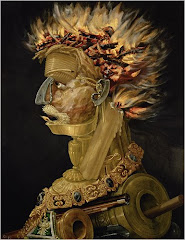The strong arm of Malacañang has once more reared its ugly head. First, there was the unceremonious suspension of the duly-elected Mayor, Vice-Mayor and majority of the City Councilors of Pasay City. What was buried in the controversy was the ironic fact that Alan Pangalagan, the mayor-designate and an incumbent City Councilor, was actually one of the original signatories to the contracts that are now characterized as illegal. Those who were suspended just continued the garbage collection contracts that were originally entered into – without any bidding – by their predecessors, including Pangalagan.
More importantly, despite the protestations of Congresswoman Connie Dy that she had no hand in the suspension of Mayor Trinidad and the others, the fact is that immediately after Trinidad left the Pasay City Hall the minions of Dy deluged and filled all the major positions and have now started kicking out Trinidad supporters in preparation for the 2007 elections where Dy is expected to throw her hat in.
Now comes the suspension of all the duly-elected officials of the City of Makati – from Mayor Binay, to the Vice-Mayor, and to 16 City Councilors. The supposed offense: the padding of payroll through “ghost” employees. DILG Secretary Ronnie Puno, the designated hit man of Malacañang, maintains that there is no political color to the suspension because other officials – in Batangas, Laguna, etc. – have also been suspended despite their being pro-administration, and that there is more than sufficient evidence of guilt on the part of Binay and the others.
While I am no fan of Binay, his answers to the pronouncements of Puno make one think that the diminutive dark-skinned City Mayor is indeed the victim of political persecution. Binay asks Puno on national TV: We are being accused of putting ghost employees in the payroll, but the accusation does not list down the names of the supposed ghost employees so how can we properly answer the charges? Touché.
Binay also tells Puno: “Don’t compare us to the officials in Batangas, Laguna, etc. Those pro-administration officials were suspended because of election cases, not of alleged graft cases.” In other words, the legitimacy of their being in office is the issue under question.
These are telling points coming from Binay. Taken together with the suspensions in Pasay City, they point to an actual persecution of those who have openly opposed the administration of President Macapagal-Arroyo. They show that this administration is not above totally disregarding the requirements of substantial evidence prior to meting out preventive suspensions. They also show a total disregard for the fact that these officials being suspended had been duly elected by their respective constituents.
This brings us to the crucial question: From whence the power of the President, exercised through the DILG, to suspend local government officials? The traditional answer is that the national government has administrative supervision over the local government. In fact, it is the teaching in the subject of Public Corporations that local government units are mere creations of the legislature and they can only have such powers as Congress may give it by law.
But this received wisdom should now be placed under serious scrutiny. Their constituents may be smaller – when compared to those of some Congressmen, all Senators and the Vice-President and the President. In fact, a governor or a mayor may serve a bigger constituency than a congressman elected from one of two or more districts. Binay, for instance, is the mayor of a city with several congressional districts. And yet, you will never hear of a congressman being preventively suspended by the DILG Secretary.
The point is, still and all, local government officials are elected by the people in their respective constituencies. Which is something you cannot say about Cabinet secretaries and undersecretaries.
The power of Malacañang to strong arm local government officials, as found in our law books, is actually a throwback to the imperial times during the Spanish period when Manila had absolute control over the rest of the country. It is a concept that was necessary for the colonists to impose. It is also the cause of so much exploitation and underdevelopment in the countrysides – the resources of the towns and provinces are siphoned off to that Malacañang-controlled Department of Budget and Management, which then dispense with the largesse of this country depending on the whims and caprices of whoever is the sitting president.
The Philippine Congress passed the Local Government Code in 1991. This law, while devolving so many of the responsibilities and duties of national government agencies, nevertheless continued the practice of siphoning off the revenues of local government units to the central government. Thus, while burdened with so many responsibilities, the LGUs were not given the wherewithal to meet those obligations.
At the same time, the Local Government Code retained the central control of the national government over locally-elected officials. This is now what Malacañang is using to replace wholesale local officials who have been unquestionably elected by their constituents to prepare the way for the candidates it will field in the coming 2007 elections.
If there is to be any revision of the 1987 Constitution, the focus should not be on changing the form of government from presidential to parliamentary. As long as political power continues to be centralized, nothing much will change in this country. Rather, the Constitution should be revised to disperse this power to the local government units, including the power to retain their part of the revenues they have generated and remitting only to the national government the latter’s share.
Tuesday, October 17, 2006
Subscribe to:
Post Comments (Atom)


No comments:
Post a Comment